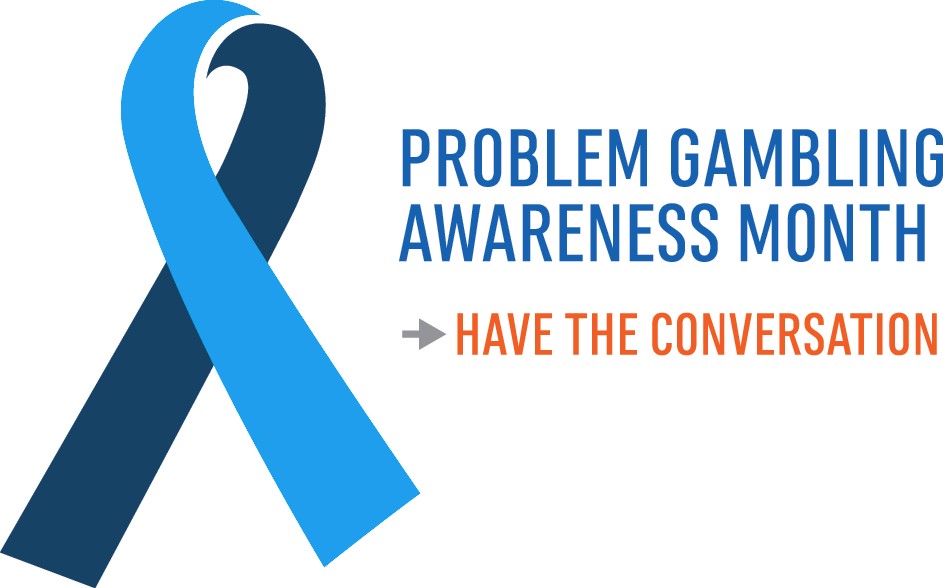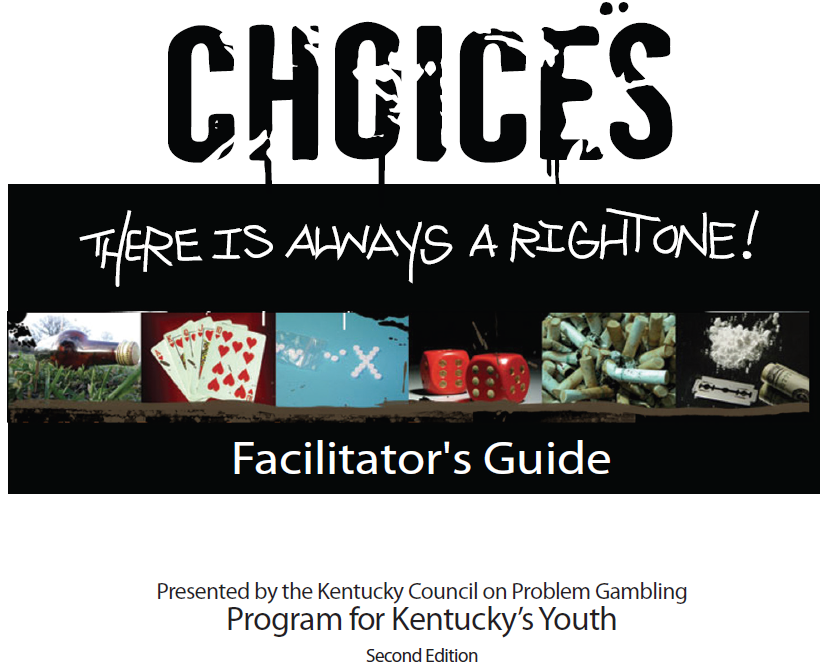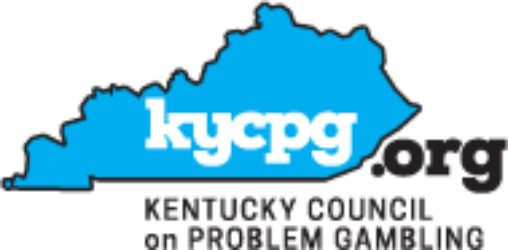Prevention, Awareness and Outreach

National Problem Gambling Awareness Month (NPGAM)
March is National Problem Gambling Awareness Month (NPGAM). The goal is to raise awareness about problem gambling. This campaign seeks to educate the public and healthcare professionals about the warning signs of problem gambling and promote the availability of help and hope both locally and nationally.
The Kentucky Council on Problem Gambling (KYCPG) adopts the National Council on Problem Gambling (NCPG) effort to encourage everyone to Have the Conversation about Problem Gambling. Most adults gamble or know someone who gambles, and therefore could benefit from programs to prevent gambling addiction. We believe many who suffer in silence do so because they don’t know why they developed a problem, what gambling addiction is, or where to get help.
Use the resources available at the link below to plan activities to help individuals learn the signs of problem gambling and know that help is available.
www.ncpgambling.org
KYCPG’s mission
KYCPG’s mission speaks to the organization’s belief in awareness and prevention. KYCPG will increase awareness of problem gambling, promote prevention and research, and advocate for the availability of treatment. KYCPG believes it is more effective long term to prevent problem and addicted gambling behavior than to either treat it or experience the negative impacts of problem and addicted gambling: domestic abuse, criminal activity, bankruptcy, loss of work, suicide, and more.
On this page is information about KYCPG’s awareness and prevention efforts, which include:
- Responsible Gaming Education Week (RGEW) held annually the first week of August.
- National Problem Gambling Awareness Month (NPGAM) held annually in March.
- Choices, an adaptable curriculum for adolescent addiction awareness. Choices, produced in cooperation with the Kentucky Lottery Corp., offers peer-to-peer vignettes of different addictive behaviors, including gambling.
- Several posters, brochures and rack cards to raise awareness of problem and addicted gambling behavior.
Some of the rack cards contain prevention messaging developed by Roger Svendsen, a certified prevention specialist from Minnesota who was a former executive director of the Northstar Problem Gambling Alliance. It’s a simple message based on three personal questions individuals can ask themselves before gambling:
- WHETHER you should gamble, knowing that losing is likely, that you cannot control chance, and that it doesnʼt interfere with other responsibilities?
- WHEN is it appropriate to gamble, understanding that gambling is not a healthful way to deal with emotions or stress?
- HOW MUCH money and time can you gamble, recognizing gambling is entertainment and not an essential expenditure of time or money?
- DURING GAMBLING:
- Keep track of preset time and money limits.
- Take frequent breaks.
- Avoid the ATM or other sources of money or credit.
KYCPG can arrange for presentations by certified gambler counselors, clergy with training on problem and addictive gambling behaviors, or KYCPG staff to raise awareness of problem and addicted gambling. For more information, please contact KYCPG Executive Director Michael R. Stone (kmstone1951@gmail.com, 502-223-1823).
KYCPG will continue efforts to raise awareness about problem and addicted gambling and develop programs in an effort to minimize problem and addicted gambling behavior. As new programs are debuted, they will be available on this website.
At the moment, the Kentucky Council on Problem Gambling (KYCPG) lacks true, evidence-based prevention materials. KYCPG does have an abundance of awareness material that is available at no charge by contacting KYCPG Executive Director Michael R. Stone
502-223-1823
Some states, provinces and academic institutions have developed gambling prevention programs.
Some references are:
- Prevention Lane in Lane County, Oregon: preventionlane.org/prevention
-
International Center for Youth Gambling Problems and At-Risk Behaviors at McGil University: NEED SITE
-
Connecticut Department of Mental Health and Addiction Services: NEED SITE
-
International Center for Youth Gambling Problems and At-Risk Behaviors at McGil University: NEED SITE

Choices: Youth Addiction Awareness Curriculum
Choices — There ALWAYS Is a Right One! is a complete lesson plan to raise awareness of potentially addictive behavior and consequences. It targets middle school and early high school youth. Produced in cooperation with the Kentucky Lottery Corporation, it covers all addictions, but does have a gambling component. The package comes complete with a peer-to-peer video of five addiction scenarios, lesson plan, and discussion questions. For ordering information, please contact KYCPG Executive Director Michael R. Stone (502-223-1823, kmstone1951@gmail.com).
Currently available brochures, posters and rack cards:
Brochures
Teen Gambling
Workplace Wagering
Charitable Gaming
Dealing with Gambling Addiction
Posters
Gambling Can Be Addictive
Youth Gambling
Responsible Gambling
Virtual Gaming
Reality Check
Workplace Wagering
Baby Boomers
Keep It Fun
At Rock Bottom?
Your Responsibility
Not a Fantasy
Posters
Youth Gambling
Women Gambling
Workplace Wagering
At Rock Bottom?
Your Responsibility
Not a Fantasy
KYCPG
502-223-1823
Email
kmstone1951@gmail.com
1-800-GAMBLER
1-800-(426-2537)
Lexington G.A.
Hotline
513-322-5998
Louisville G.A.
Hotline
855-222-5542
Cincinnati G.A.
Hotline
855-222-5542
